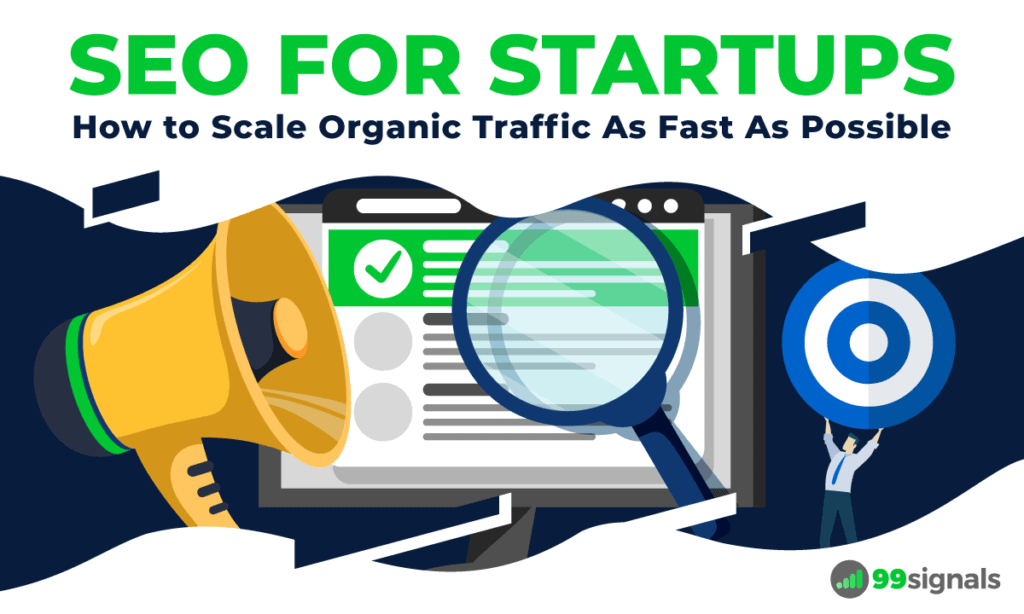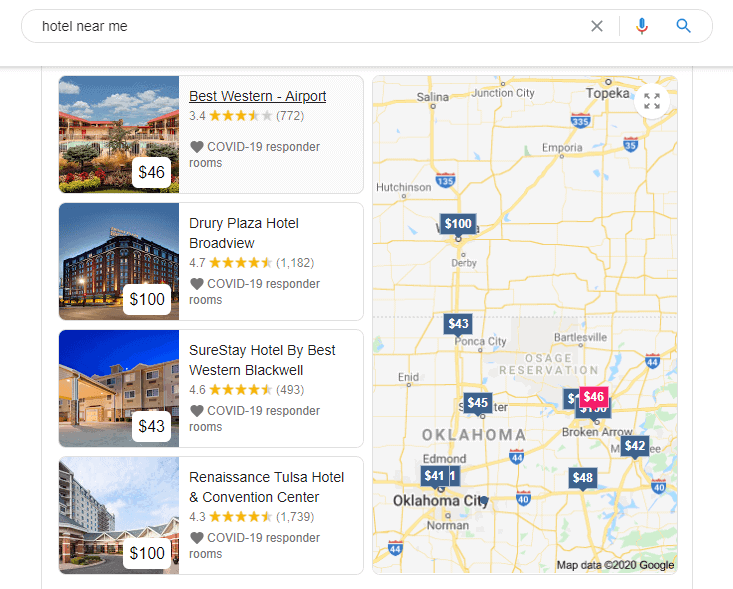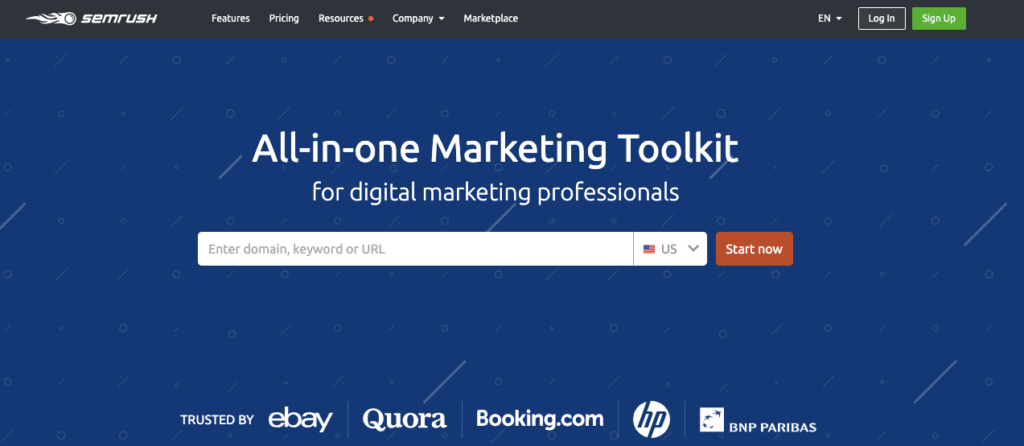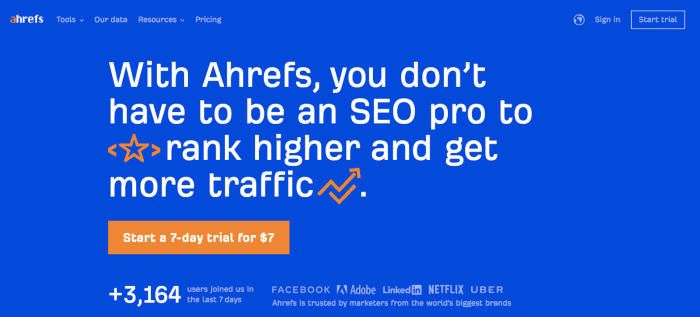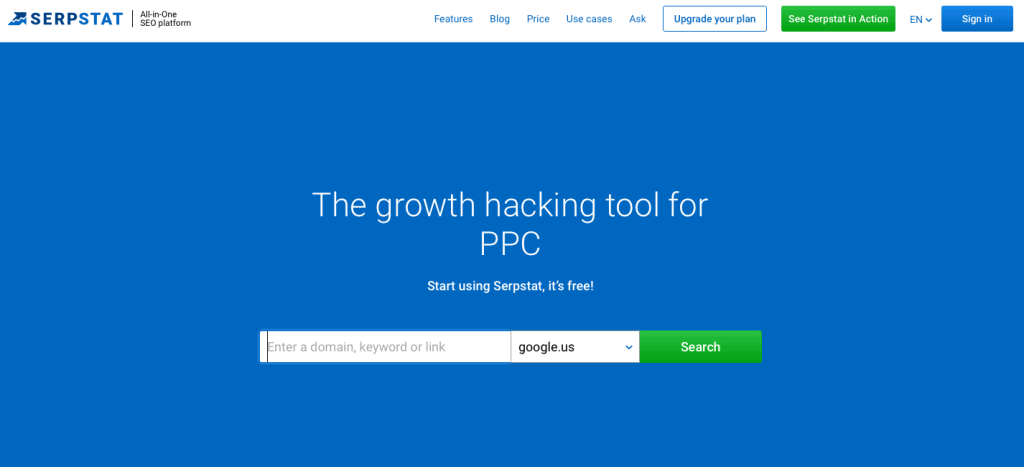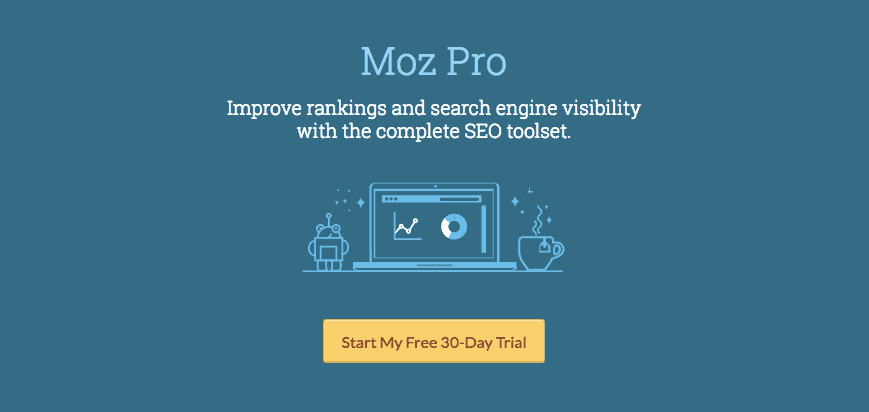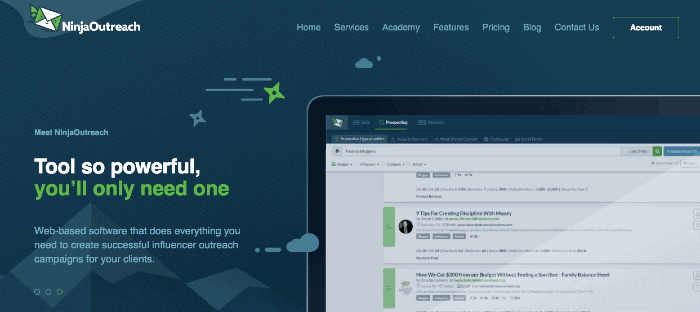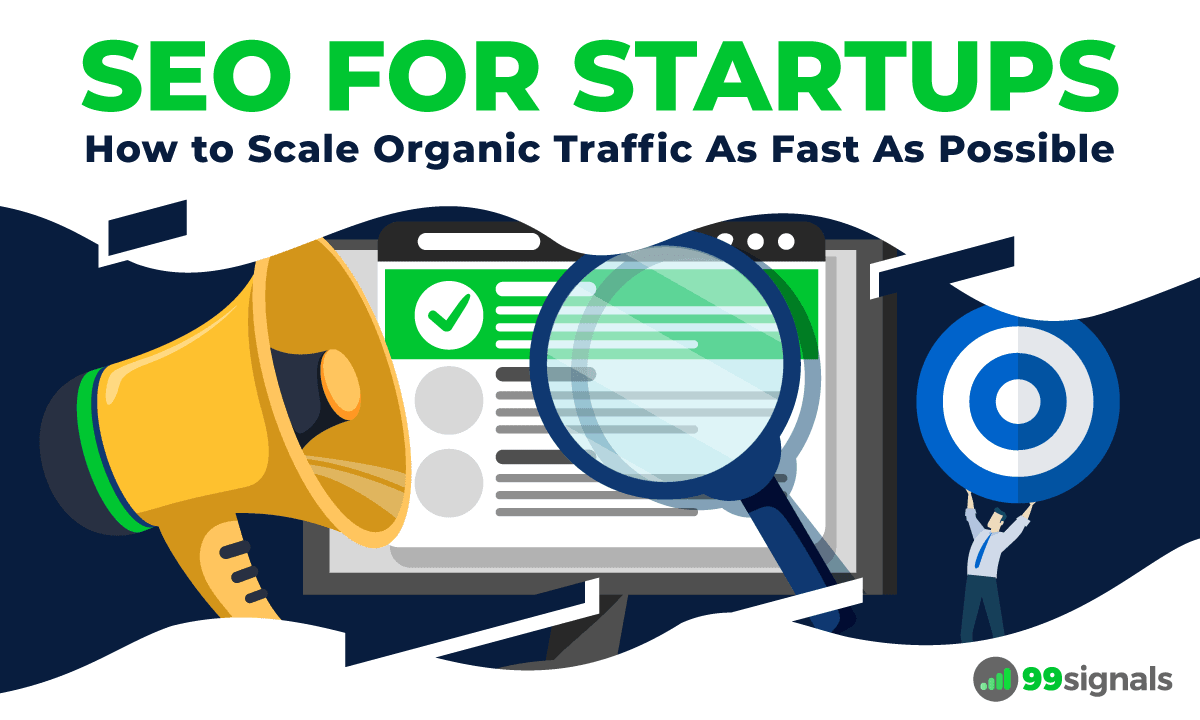Despite that, SEO is the way to go for a lot of businesses big and small simply because it delivers the best ROI and reinforces sustainable growth. But to achieve this takes time. And this often means needing more budget. Given the nature of brand-new startups — the lack of resources and the race against time to build a reputation, generate buzz, and create invaluable content — SEO for startup businesses is even trickier. This is the bane of many early-stage startups’ existence. And your startup is probably one of them. How should startups approach SEO? In this post, you’ll learn everything you need to know about SEO for startups in under 10 minutes. We will cover all the basics:
Is SEO for startups the same as regular SEO? SEO for tech startups vs. SEO for SaaS startups What search engines really want from you How search engines measure KPIs How to build an SEO-friendly website for startups Best SEO tools for startups When to hire an SEO agency for startups
Let’s get your startup in the front door of organic search, shall we? But first…
Is SEO for Startups the Same as Regular SEO?
Yes! Apart from the degree of the challenge, SEO for startups is the same as SEO for any other type of company. Google doesn’t give a damn who you are — whether you are a small eCommerce shop, a billion-dollar tech company, or a startup. What Google wants is simple — to deliver the most relevant, high-quality content to its users. To produce such content is one of the basic things to win the favor of search engines and occupy the most important parts of the SERP real estate. But as mentioned, startups have to deal with a different challenge. Often startups don’t have the means as immense as that of big companies, yet you have to scale quickly and take on the heavyweights in your industry. And for the most part, this equates to enterprise SEO on a shoestring budget, which often comes with a few trade-offs. Let’s look at hotels as an example. The top results are dominated by the likes of Hotels.com, Expedia.com, Tripadvisor.com, and Booking.com. Despite the mighty presence and brand affinity of these big companies in the search, Google still displays local hotels in the most important part of the top SERP — the local pack.
This is the power of local SEO that some startups may be able to take advantage of. If you nail the basics of search engine optimization and develop a self-sustaining SEO strategy for startups within your budget, you are bound to accomplish greater things with your business.
SEO for Tech Startups vs. SEO for SaaS Startups
What about SEO for tech and SaaS startups? Is there a difference? There’s none. Whether you are a tech or SaaS company (technically still tech), Google doesn’t care what you are. The same SEO principles apply to both tech and SaaS companies.
What to Include in SEO Strategy for Startups
So what do search engines really want from you? Your business and your SEO objectives are none of Google’s business. Google has its own MO. In terms of ranking pages in SERPs, here’s an SEO checklist for startup websites that Google is looking at:
Accessible Pages
It may be stating the obvious, but search engines need to crawl and index your website before displaying your pages.
Good Content
When I say good content, it’s relevant, high-quality, unique, and actionable. Content that does not meet the search intent of a query is going to be buried six feet under.
Smooth User Experience
Long gone are the days when most websites are static, with no regard to user experience. Responsive, fast-loading, and easy-to-navigate websites are the name of the game now.
Good User Engagement
Good user engagement often is a by-product of good content and an awesome user experience. User engagement is one good way for Google to tell if your website is serving your visitors well.
Page and Technical Optimization
Optimization on the technical and page-level is something both Google and users would want to easily get around your website.
How Search Engines Measure These KPIs
You’ve probably heard it all before — to rank on top of SERPs, you need quality blog posts and great user experience. But these phrases are ambiguous. How does Google actually decide on these fuzzy words? Google’s Search Quality Senior Strategist Andrey Lipattsev pointed out that links, content, and RankBrain are the top three ranking factors Google uses. Let’s dissect these factors.
Keywords
How Google looks at keywords when matching content to searches has been one of the many critical changes in its search algorithms in the last few years. Those times when Google just matches search queries to the words on a page are long gone. Google’s search algorithms are capable of peering through your page’s topical relevance and match it to the search term’s contextual sense.
Backlinks
As mentioned, links are one of Google’s top three ranking signals for ranking pages. Google usually sees content that has a lot of inbound links pointing to it as high-quality and engaging. Note, however, that link quality always precedes link quantity.
UX Signals
When ranking pages, Google also takes its cue from the UX point of view. And user experience uses a combo of UX signals to know how it fares. These UX signals include load time (learn more about core web vitals), mobile-friendliness, encryption, and no intrusive interstitials.
Engagement Metrics
Engagement signals are best measured through Google Analytics. In Google Analytics, you can find a goldmine of engagement KPIs like page views, time on page, bounce rates, average session duration, pages per session, exit pages, and a good deal of other SEO metrics.
Location
Including location in an SEO strategy depends on your line of business. If your startup fully relies on location data to engage with new or old customers, location is an important ranking factor when it comes down to relevance for location-based searches. When Uber, Airbnb, and Lyft started out, they made sure they dominated local results. Google My Business is often the fastest way to catapult your site to the top of the SERP. Regardless of the SERP being dominated by big names, Google is still bound to display some local search results whenever it’s fitting. Sure, local SEO won’t work for every startup. But if you are serving local areas, it’s a huge advantage. Take hotels, for example. For many small companies, local search listings are the only way to overthrow big names from the top search results. Learn more actionable local SEO tips via this Marketing Mantra podcast episode with local SEO expert John Vuong.
How to Build an SEO-Friendly Website for Startups
Building a website for startups takes more than just buying cheap web hosting. Scaling your growth with it is going to be an uphill battle. So how does a startup website that’s optimized for search engines look like? Here are some SEO tips for startups when building an SEO-friendly website:
Web Hosting
Startups need to evolve as fast as they can, and settling on the wrong web hosting package can be a costly mistake. It can be a bottleneck to your growth. Choosing between a shared hosting, a virtual private server, or a dedicated hosting can make all the difference to your website’s overall performance. If you want optimum site speed performance, shared hosting should not be an option at all. More than the site speed, lower-tier hosting also puts limits on the number of simultaneous site visitors and the amount of data that can be transferred between your site and your visitor. If your company outgrows your hosting package, your visitors will likely have a tough time accessing your website. So choose a hosting package that will grow with you. In addition, you also have to consider your host’s uptime record, security system in place to protect your website, and some performance features like web cache, content delivery network (CDC), etc. Some of the best web hosts for startups are Bluehost, Cloudways, InMotion, and WPX Hosting.
Code
The code is a critical website performance factor. It affects everything from site speed to your site’s crawlability and indexability. If you are using WordPress and other CMSs, beware because many of these are bloated. You can still use them, but be sure to clean the code. The good thing about WordPress is the ready-to-use templates, enabling users to publish new pages at the click of a button and write content in a display-rich interface. And you can do so much more with the help of SEO plugins. It makes building websites so much easier.
Design
Search engines can’t see the graphic design of your site, but they can understand the layout of a page and the structure of your site. So long as you mark them up accurately, you should be good.
Additionally, you also need to take UX signals into account, as mentioned earlier, because they directly affect engagement signals. User experience is a direct ranking signal for mobile pages. But it doesn’t mean user experience and engagement signals don’t matter to desktop rankings. Case in point — high bounce rates and turtle-slow page speed are bad indications to Google regardless of devices.
Content
Content is the reason people use search engines. Meeting that intent is going to bring your pages further on top of SERPs. Producing good content on a regular basis is a big challenge, not only of startups but of many modern businesses in general. As mentioned, good content is of high quality. But this modifier seems to be too vague. To elaborate further what makes content good, here are some qualifying questions:
Is it valuable? Is it actionable? Is it unique? Is it relevant to your visitor? Is it link-worthy? Is it shareworthy? Is it easy to read and understand? Is it visually appealing? Is it optimized for both search engines and users?
If your content ticks all the boxes (or at least most of them), then it’s bound to get some traction in organic search. Add to that a solid distribution and promotion strategy. Check out the content strategy of some of the most successful startups if you don’t have a starting point. Think Uber, Airbnb, Slack, Skillshare, Glossier, and Mint. With the help of a robust content marketing strategy, these brands were able to leverage the maximum power of content to put their brand front and center in organic search.
On-Page Optimization
You can read many on-page optimization guides, so we won’t dwell much into it. But I’d like to make a few key points concerning search engine optimization on the page level. Here are some of them:
Page URLs
Per Google’s SEO guidelines, page URLs have to be short, descriptive, and readable. Include your primary target keyword in it, but it should match the page’s content.
Page Titles
Page titles are the first thing people see in SERPs. Make sure it’s descriptive, compelling, and readable. Include your primary target keyword in it, but it should also match the content. Ideally, page titles should be no more than 70 characters long.
Headings
Break your body texts with comprehensible headings. And headings should be in order. Google’s webmaster trends analyst John Mueller had stated before that it doesn’t matter if you have multiple H1 tags. But I’d still recommend using headings accordingly for better user experience.
Content
A page’s content should be unique and useful. It should contain information that meets the search intent behind target keywords.
Images
Google Images is the second biggest search engine after Google Search. Use images to increase your chances in the organic search rankings. Also, images are best used to break up large chunks of texts. Read this nifty guide to image SEO for some tips.
Keywords
Include keywords in page URLs, page titles, headings, content, and image alt texts. Google has been like a broken record saying this — avoid keyword stuffing.
Internal Links
Internal links can increase your visitor’s time on your site and significantly reduce the bounce rate. They are also good for passing on link equity to the least performing pages.
Structured Data
Search engines use structured data to display rich results, which can lead to more conversions. Take advantage of this to mark up your pages’ sections like reviews, articles, addresses, etc.
Best SEO Tools for Startups
When it comes to SEO tools for startups, you have a quite wide variety of options. Choosing the best tools boils down to your needs and how much you are willing to spend. On this list, we will rule out free SEO tools like Google Analytics, Google Search Console, Google PageSpeed Insights, etc. These tools are a no-brainer.
1. SEMrush
SEMrush is another all-in-one digital marketing tool that’s as popular as Ahrefs. It boasts a range of SEO tools to meet all your SEO needs, including keyword research, competitor research, backlink analysis, site audit, PPC analysis, and so many more. SEMrush plans start at $99.95 per month. Read Sandeep’s comprehensive SEMrush review.
2. Ahrefs
Ahrefs is one of the most popular all-in-one digital marketing tools out there. It comes with a variety of SEO tools you can think of. But one Ahrefs tool that’s highly regarded by the SEO community is its backlink analysis capabilities. Ahrefs gives you an accurate link profile, whether it’s your website or your competitors. Ahrefs plans start at $99 per month. Read Sandeep’s in-depth Ahrefs review.
3. Serpstat
Serpstat is a full-suite SEO tool. Its toolsuite includes keyword research, competitor research, rank tracking, backlink analysis, content marketing, on-page audit, and PPC analysis, among many others. Serpstat is a good option for startups with a shoestring budget. Its basic plan costs $69. Read Sandeep’s comprehensive Serpstat review.
4. Moz
Moz is the OG of all SEO tools, which first started in 2004. Though its success has been eclipsed by the likes of Ahrefs and SEMrush, Moz is still a great contender. Moz plans start at $99 per month. Read Sandeep’s side-by-side comparison review of Moz and SEMrush.
5. Ninja Outreach
Ninja Outreach specializes in influencer marketing. It’s quite a nifty tool for outreach campaigns. If you want to focus on spying on your competitor’s backlinks and get them for your website, Ninja Outreach is the most practical tool. Ninja Outreach plans start at $199 per month.
When Should You Hire an SEO Agency for Startups?
If managing an SEO campaign on your own seems like beyond your skillset, or you would rather focus on running your company, there’s always the option to use SEO services for startups. Why should you hire an SEO agency for startups? These agencies have established expertise and industry knowledge to help your startup navigate the patchy waters of SEO, especially if you have tough competition. The SEO strategy for startups is more complex, and so it requires a great deal of time and resources. Only an experienced SEO agency for startups can carry your SEO campaigns with finesse and great potential to generate bigger ROI. If you have in-house SEOs who can handle all aspects of SEO, you are probably in good hands. If you are looking to DIY your SEO strategy but you lack the technical knowledge of SEO, you should be safer with hiring a competent SEO consultant. Hiring professional SEO services is appealing. But I have to warn you, it costs an arm and a leg to sign on the competent ones who actually know what they are doing. Then again, it’s up to you and what your budget can accommodate.
In Conclusion
With many brand-new startups not having a hefty marketing budget and often running on a skeleton crew, it comes as no surprise that SEO is the last thing early-stage growth and marketing employees would approach. And that’s okay. SEO is a long game. From content marketing to brand building to lead generation to customer acquisition, SEO really takes time to pay off big time. But you don’t really have to depend solely on SEO to achieve your goals. What’s certain is that you should start working on it from day one. What are your SEO struggles at this stage of your startup? If you found this article useful, please share it on Twitter using the link below:
10 Best SEO Podcasts to Master the Art of SEO SEO Case Study: How I Boosted Organic Traffic to an Old Article by 146% in 30 Days 5 Best SEO Tools for Digital Marketing Agencies
